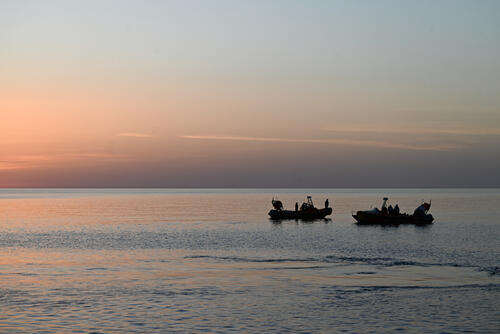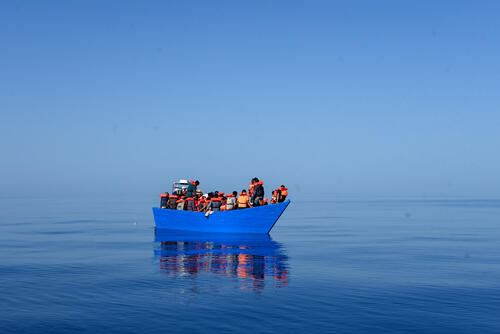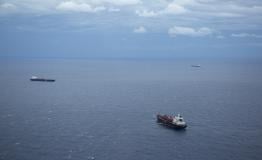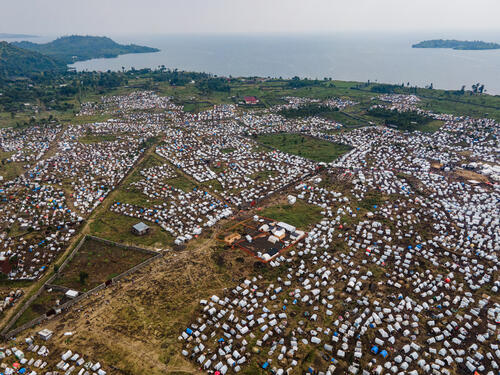- After an unjustified and unacceptable delay from Italian authorities, all 572 survivors on board the Geo Barents have been safely disembarked to Catania port, Italy.
- Many survivors suffered psychological and physical deterioration due to the negligent delay of disembarkation with one survivor having to be evacuated.
Rome - After 10 days at sea and three days of waiting at the Catania port, all survivors on board of the Geo Barents disembarked to a safe place on 8 November, away from the violence and suffering they fled in Libya.
Italian authorities first allowed only the disembarkation of 357 people, leaving the other 215 people on board as hostages of a political debate and an unlawful decision that prevented them from receiving assistance and protection onshore.
After the selective disembarkation, the psychological and physical state of some of the remaining people on board dramatically deteriorated. One survivor was evacuated during the night of 6-7 November because of strong abdominal pains, and other survivors showed signs of anxiety and had panic attacks.
The delayed disembarkation carried out by the Italian authorities is inhumane, unacceptable and illegal.Juan Matias Gil, MSF search and rescue head of mission.
“The process of selective disembarkation based on survivors’ medical conditions and the delayed disembarkation carried out by the Italian authorities are inhumane, unacceptable and illegal,” says Juan Matias Gil, MSF search and rescue head of mission.
“According to international maritime law, survivors rescued at sea must be disembarked in a place of safety within a reasonable time,” says Gil.
Relevant legal instruments and guidelines do not make disembarkation in a place of safety conditional on the existence of medical conditions or other reasons.
On the contrary, responsible coastal States should make every effort to minimise the time survivors remain aboard the assisting ship, taking into account the particular circumstances of a rescue, such as the situation on board the assisting ship and medical needs.
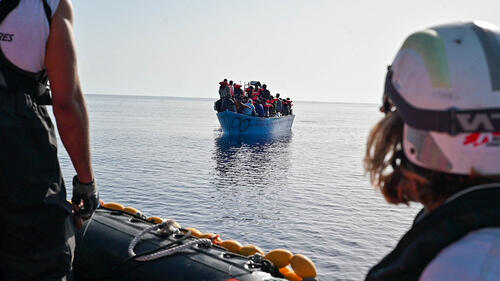
“Many of the survivors carried previous trauma, the result of violence and abuse experienced in Libya, in their home countries, or along the journey,” says Stefanie Hofstetter, MSF medical team leader on the Geo Barents.
“Prolonged waiting created strong emotional and psychological distress. Episodes of insomnia, anxiety and physical and psychological distress became more frequent day by day. And for our part, we had no answers to give when they asked us why we couldn’t disembark,” she says.
One of the survivors, Akhtar*, a 21-year-old young man from Bangladesh, told MSF staff that he left his country almost two years ago. His journey took him first to Syria, Libya, and ultimately to the Mediterranean Sea, where he risked his life on an overcrowded wooden boat.
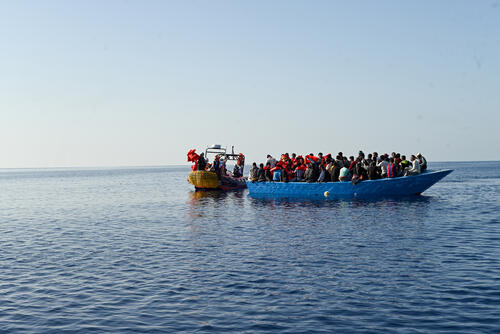
The Geo Barents left Catania port yesterday, and will get ready to go back at sea to rescue those in need. This has been and will remain our answer to European and national reckless policies of non-assistance at sea, condemning people to drown and refusing to disembark them to a safe place.
“As a humanitarian organisation, we will continue lifesaving rescue operations at sea, in line with international maritime law, according to which we have conducted our activities so far. A rescue starts with taking people out of the water, and concludes when all survivors disembark in a safe place,” says Gil.
*Names changed to protect identity.
MSF has been running search and rescue (SAR) activities in the central Mediterranean since 2015, working on eight different SAR vessels (alone or in partnership with other NGOs). Since launching SAR operations with the Geo Barents in May 2021, MSF has rescued 5,497 people and recovered the bodies of 11 who died at sea.



